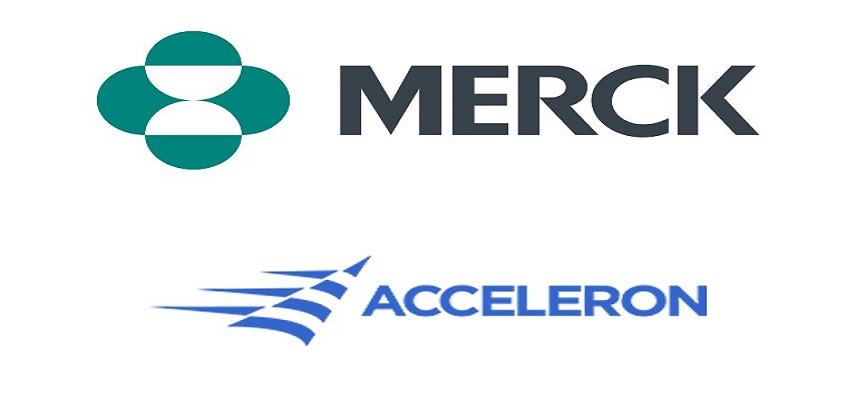EMA Recommends Approval of Merck’s Keytruda Plus Padcev
EMA committee recommends approval of Merck’s Keytruda plus Padcev to treat patients with unresectable or metastatic urothelial carcinoma
Overview
Merck, known as MSD outside of the United States and Canada, announced that the European Medicines Agency’s Committee for Medicinal Products for Human Use (CHMP) adopted a positive opinion recommending approval of Keytruda, Merck’s anti-PD-1 therapy, in combination with Padcev (enfortumab vedotin-ejfv), an antibody-drug conjugate, for the first-line treatment of adult patients with unresectable or metastatic urothelial carcinoma.
KEYNOTE-A39 Trial
- The recommendation is based on results from the first interim analysis of the phase 3 KEYNOTE-A39 trial (also known as EV-302), which was conducted in a research collaboration with Pfizer (previously Seagen) and Astellas, in which Keytruda plus enfortumab vedotin demonstrated statistically significant and clinically meaningful improvements in overall survival (OS) and progression-free survival (PFS) versus platinum-based chemotherapy (gemcitabine plus cisplatin or carboplatin).
- In KEYNOTE-A39, the Keytruda plus enfortumab vedotin combination reduced the risk of death by 53% (HR=0.47 [95% CI, 0.38-0.58]; p<0.0001) versus platinum-based chemotherapy (with 133/442 [30%] vs 226/444 [51%] events observed, respectively), with the combination also reducing the risk of disease progression or death by 55% (HR=0.45 [95% CI, 0.38-0.54]; p<0.0001) versus platinum-based chemotherapy (with 223/442 [50%] vs 307/444 [69%] events observed, respectively).
- The CHMP’s recommendation will now be reviewed by the European Commission for marketing authorization in the European Union (EU), and a final decision is expected in the third quarter of 2024.
Words from CMO: Merck Research Laboratories
- The CHMP’s positive opinion reinforces the landmark results from KEYNOTE-A39 and follows the recent adoption of the European Society for Medical Oncology and European Association of Urology clinical guidelines recommending Keytruda plus enfortumab vedotin as the preferred first-line treatment for patients with advanced or metastatic urothelial carcinoma, regardless of platinum eligibility,” said Dr. Eliav Barr, senior vice president and head of global clinical development, chief medical officer, Merck Research Laboratories.
- We look forward to the European Commission’s decision and are excited to be taking the first steps to provide a potential new first-line standard of care for the treatment of this disease in patients in the EU.”
Keytruda’s Previous Approvals in EU
- If approved, this will be the third bladder cancer indication for Keytruda in the EU.
- Keytruda was previously approved in the EU as monotherapy for the treatment of locally advanced or metastatic urothelial carcinoma in adults who have received prior platinum-containing chemotherapy, as well as adults who are not eligible for cisplatin-containing chemotherapy, based on results from KEYNOTE-045 and KEYNOTE-052, respectively.
- In December 2023, Keytruda plus enfortumab vedotin was approved in the U.S. for the treatment of adult patients with locally advanced or metastatic urothelial cancer.
Combined Clinical Development Programme
Merck, in collaboration with Pfizer and Astellas, are evaluating this combination as part of an extensive clinical development programme in multiple stages of urothelial cancer, including two phase 3 clinical trials in muscle-invasive bladder cancer in KEYNOTE-B15 (NCT04700124, also known as EV-304) and KEYNOTE-905 (NCT03924895, also known as EV-303).
About Keytruda
- Keytruda is an anti-programmed death receptor-1 (PD-1) therapy that works by increasing the ability of the body’s immune system to help detect and fight tumour cells.
- Keytruda is a humanized monoclonal antibody that blocks the interaction between PD-1 and its ligands, PD- L1 and PD-L2, thereby activating T lymphocytes which may affect both tumour cells and healthy cells.
About Merck
- Merck has the industry’s largest immuno-oncology clinical research program.
- There are currently more than 1,600 trials studying Keytruda across a wide variety of cancers and treatment settings.
- The Keytruda clinical programme seeks to understand the role of Keytruda across cancers and the factors that may predict a patient's likelihood of benefitting from treatment with Keytruda, including exploring several different biomarkers.
Clinical Collaboration Between Brands
- Astellas and Seagen entered a clinical collaboration agreement with Merck to evaluate the combination of Astellas’ and Seagen’s Padcev (enfortumab vedotin-ejfv) and Merck’s Keytruda (pembrolizumab) in patients with previously untreated metastatic urothelial cancer.
- Padcev and the Padcev device are trademarks jointly owned by Agensys, Inc., and Seagen Inc. Pfizer Inc. completed its acquisition of Seagen on December 14, 2023.

Optimize Your trial insights with Clival Database.
Are you exhausted from the uncertainty of trial insights pricing? Clival Database ensures the clarity in the midst of the global scenario for clinical trials to you.Clival Database is one of the best databases that offers an outstanding number of clinical trial data in terms of 50,000+ molecules and from primary regulatory markets as well as new entrants like Indian and Chinese markets.
With Clival, you get accurate positioning of historical sales data, patent database, company profiling, safety & efficacy, and prediction of launch of new innovative molecules helping you to align your research and driving down the cost.
To add value, we further break down our analytics for you so that improving your operational effectiveness; optimizing your clinical trials; and offering you accurate and high-quality data at lowest possible prices becomes possible.
Elevate your trial success rate with the cutting-edge insights from Clival database.
Check it out today and make more informed sourcing decisions! Learn More!







